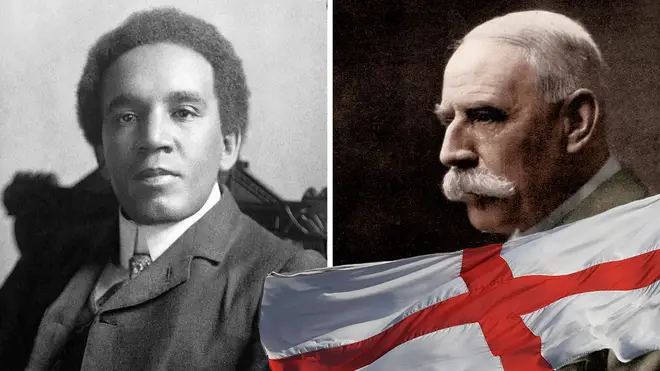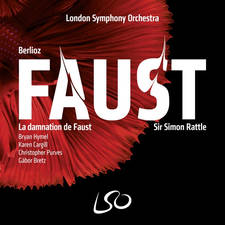13 glorious pieces of English classical music
8 July 2021, 16:18

From George Frideric Handel to Edward Elgar, here’s our edit of some of the most ravishing English instrumental, orchestral and choral music ever written.
The contribution of English composers to the classical music canon is rich, varied, and centuries old.
From the works of Renaissance masters like William Byrd and John Dowland, to the indomitable Edward Elgar and Ralph Vaughan Williams, and modern masters like John Tavener, Errollyn Wallen, Judith Weir and Thomas Adès, it’s an unignorable contribution.
Amidst the masterful roster are some standout pieces of English classical music that both music history, and today’s classical music tastes, tell us audiences can’t get enough of – be that because of how ground-breaking they were in their time, or just because of the darn marvellous melodies they showcase.
So without further ado, here are some of the very greatest and enduringly beloved pieces of English music ever written.
Read more: 10 of the best English composers
-
Ralph Vaughan Williams: The Lark Ascending
An enduring favourite of classical music lovers who vote it in as No. 1 in the Classic FM Hall of Fame year-after-year, Vaughan Williams’ work for violin and orchestra based on George Meredith’s pastoral poem is perhaps the quintessentially English piece of music.
Programmatic, tracing the flight of that rising Lark, the work is characterised by ravishing orchestral moments and soaring solo violin writing.

A beautiful moment from The Lark Ascending, performed by Jennifer Pike
-
Edward Elgar: Cello Concerto
Edward Elgar completed his Cello Concerto in 1919, and it’s a contemplative and pained exploration of the composer’s experience of the First World War, and reflecting on old age and beyond.
From the dramatic opening chords onwards it’s at once beautiful and poignant writing. A true masterpiece of the English classical canon.

Cellist Sébastien Hurtaud plays Elgar Cello Concerto (3rd movement)
-
Gustav Holst: The Planets
Composed between 1914 and 1916, Holst’s The Planets is an orchestral piece with seven movements named for all the planets of our solar system that were then visible from Earth: Mars, Venus, Mercury, Jupiter, Saturn, Uranus and Neptune.
Holst took his musical cues from the planets’ corresponding astrological characters, which provide subtitles for the movements, and he composed in distinctive moods and styles for each.

Melodica Men - Jupiter (Holst)
-
Hubert Parry: Jerusalem
Parry here has set a short poem by William Blake, entitled ‘And did those feet in ancient time’, into a dignified, swelling hymn tune.
The 1916 song was taken up by the Suffragettes in 1917, and King George V is believed to have said that he preferred thinking of ‘Jerusalem’ as the English national anthem, over ‘God Save the King’.

Jerusalem, from St Paul's Cathedral in London
-
Samuel Coleridge-Taylor: The Song of Hiawatha
The Song of Hiawatha is one of the most famous works of Samuel Coleridge-Taylor, a contemporary of Ralph Vaughan Williams and Gustav Holst (above).
Hiawatha is a three-part choral work inspired by the epic poem of the same name by American poet Henry, Wadsworth Longfellow.

Samuel Coleridge-Taylor: The Song of Hiawatha (Overture) – With Joshua Weilerstein
-
George Frideric Handel: Zadok the Priest
‘Zadok the Priest’ is an energising choral anthem, written by the German-born English composer Handel.
It was penned for the 1727 coronation of King George II, and forms part of the composer’s Coronation Anthems set alongside ‘Let Thy Hand Be Strengthened’, ‘Thy King Shall Rejoice’, and ‘My Heart is Inditing’ – all great works, but ‘Zadok’ is the enduring banger.

Handel's Zadok the Priest – Royal Liverpool Philharmonic Orchestra
-
Edward Elgar: Enigma Variations
Elgar’s Enigma Variations is an orchestral work featuring 14 variations on an original theme.
Not content with just writing a magnificent piece of music, Elgar confessed to hiding a cryptic musical mystery deep in the heart of his Enigma Variations, writing: “The Enigma I will not explain – its ‘dark saying’ must be left unguessed, and I warn you that the connexion between the Variations and the Theme is often of the slightest texture…”

Elgar's Nimrod – Carducci Quartet
-
Henry Purcell: ‘Dido’s Lament’
‘Dido’s Lament’ is the colloquial name for a sublime aria, ‘When I am Laid in Earth’, from English Baroque composer Purcell’s heart-breaking 17th-century opera, Dido and Aeneas.
The aria comes at the climactic point in the opera when tragic heroine Dido vows to take her own life following a betrayal from her love Aeneas. She sings, “When I am laid in earth, may my wrongs create no trouble in thy breast...”, as her lover sails away from her, and she ultimately ends it all.

I Can't Breathe- Cellist Performs Dido's Lament for Black Lives Matter Protest
-
Rachel Portman: Emma
English composer Rachel Portman won an Oscar for her ravishing score for the 1996 film adaptation of Jane Austen’s classic novel, starring Gwyneth Paltrow.
The music is fittingly English and evocative of Austen’s world, making it an essential cinematic addition to this most English of classical collections.

Rachel Portman ~ Emma
-
John Dowland: ‘Flow, my tears’
In the style of John Lennon and ‘Imagine’, ‘Flow, my tears’ was Renaissance composer, lutenist and singer John Dowland’s signature song.
A beautiful melancholy melody, it was originally composed as an instrumental piece entitled ‘Lachrimae pavane’. History actually has Dowland down as signing his name with “Jo: dolandi de Lachrimae” – what did we say about it being his signature song?

Dowland Lachrimae Antiquae Novae– Stile Antico | Wigmore Hall | Classic FM Sessions
-
Edward Elgar: Pomp and Circumstance Marches
The Pomp and Circumstance Marches are a whole collection of five or six marches (one was completed from notes left by Elgar, after the composer’s death), the most popular and oft-heard being the Pomp and Circumstance March No. 1, ‘Land of Hope and Glory’.
A huge fan of chivalry in all its forms, Elgar took the title of his marches from the line in Act III, Scene 3 of Shakespeare’s Othello, the ‘pride, pomp and circumstance of glorious war’. Bravo old chap.

Elgar: Pomp and Circumstance / Rattle · Berliner Philharmoniker
-
Benjamin Britten: Young Person’s Guide to the Orchestra
This wonderful English orchestral piece does what it says on the tin: it introduces young people (and old, ahem) to every instrument of the orchestra by sharing a catchy tune out among the different instruments in turn, in an orchestral variations extravaganza to rival the very best of them.
Britten took a melody from fellow English composer Purcell for the piece, which was commissioned for a British documentary called Instruments of the Orchestra.

Young Person's Guide - Britten
-
John Tavener: ‘The Lamb’
Sir John Tavener was an English composer famous for his sacred choral works. ‘The Lamb’, composed in 1982, is a sparse, sometimes dissonant and sublimely beautiful setting of William Blake’s poem of the same name.
It was premiered at the Festival of Nine Lessons and Carols in King’s College Chapel, Cambridge on Christmas Eve of the same year it was composed, and Italian director Paolo Sorrentino used it to striking effect in the score to his 2013 film The Great Beauty (La grande bellezza).

The Lamb -- Tenebrae Choir









































